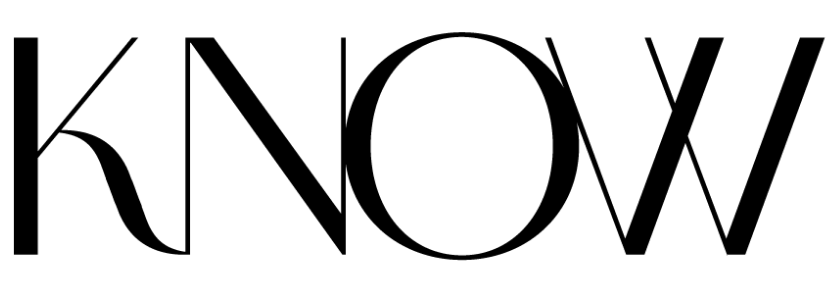
Lori Harris | Harris Whitesell Consulting LLC | KNOW Raleigh

The dynamics of today’s innovation and change afford successful people an opportunity to realize exponential value, growth, and opportunity. These elements can be realized in personal relationships, transformational careers, impactful team building and development, and in maximizing organizational health.
The impact one successful person can make extends beyond just a single individual to ripple throughout their network and, most importantly, can improve their influence with those in their circle of trust, commitment, and accountability.
So, how do successful professionals move beyond the norm and break through to new heights of achievement and success, both personally and professionally? There is a level of courage, humility and discipline that is needed to launch and support the shift from current state to future state, and the coaching work that lies between.
Hiring a coach is a strategic decision and one that should not be taken lightly. There are significant, positive, and sustainable results achieved when a successful person is intentional in making the decision to work with a coach and customize a coaching strategy that will guide them through a transformative process of growth.
Before you get started, it is important to explore the reasons why and to consider key insights you will need to help you decipher the next steps in hiring and working with a coach.
Here are a few questions to consider and ask yourself:
Questions to ask yourself when hiring a professional coach:
- Am I ready for professional coaching?
Your state of readiness is important to the success of your experience.
- How ready, open, and comfortable am I with evaluations and assessments, reading and engaging in exercises to assist with my transformation?
Gaining an understanding of your personality, communication intelligence, leadership effectiveness and resiliency and having insights on how others perceive you are key to growth and learning.
- What do I hope to achieve by hiring a professional coach?
Understanding the “why” is critical. Be clear and communicate your expected outcomes. This will support the customization and strategy that will help you maximize excellence and success with your coach.
- What level of energy, time and money am I willing to invest and commit to in working with a coach?
Understanding your priorities and what you may need to delegate and committing yourself to the coaching agreement and plan is part of realizing success.
- How important is chemistry with the coach to me?
Alignment of work ethic and values are key to ensuring a positive coaching experience.
- How willing am I to include stakeholders in the process of coaching?
Having the insight of perception, embracing the opportunity to optimize feed forward, and activating personal mastery are three resources that make engaging stakeholders in the process of growth and learning valuable.
Questions to ask yourself about the coach:
- What are some of the most common coaching types and methods?
Most common are leadership and executive coaching, team coaching, group coaching and integrated coaching. A few common methods are in-person sessions or virtual sessions.
- Are coaching certifications and coaching experience relevant?
Certification and coaching experience provide credibility and create the opportunity for growth.
- Does the coach have a coaching code of ethics that they abide by?
A code of ethics helps describe the core values and ethical principles of behaviors that guide reflection, education, decision making and service. Great coaches openly share and demonstrate their coaching ethics and values.
- Does the coach have a coaching agreement and contract?
Good coaching agreements and contracts protect both the client and the coach and provide a clear coaching vision of key expectations.
- Does the coach have a business license and liability insurance?
This is important because certification and experience offer credibility to ensure a safe and successful coaching experience.
- Does the coach have, and are they willing to share, references to current and past clients that I may speak with?
Just as with any hiring, being able to refer to others and identify capability, experience and worthiness are key to aligning the right coach for growth and learning experience.
- What competencies and skills should I look for in a qualified and experienced professional coach?
A few core competencies beyond ethical and professional agreements, contracts and standards are trust, safety, discipline and commitment, accountability, coaching presence, powerful questioning, cognitive and active listening, direct and effective communications, administration, and facilitation, invoking inquiry, program development for ongoing learning, organization, planning and goal setting and reliability.
- How is coaching success defined and measured?
A needs assessment in the exploration stage is key to the coaching agreement or contract that outlines the program, systems, and processes and how that success will be measured. Various assessment, evaluation and survey tools are often used to capture and utilize key data for client’s transformation. Data is analyzed, reported, and shared to support reading and exercises that help the client transition through and achieve a transcendental state.
As successful people ponder these various questions and begin to explore, evaluate, and select a professional coaching candidate, they have engaged themselves in the initial phase of coaching. This initial phase is the realization that things need to change for the better. No longer do they want to be stuck in a siloed mentality, but rather they want to open themselves up to the self-mastery and authentic transformation that affords them further excellence and success in life.

More About Lori
Talent Management Executive providing world-class service in Organizational & Culture Effectiveness| Talent Optimization| Executive, Leadership & Team Development & Coaching | People Data Expert | Author & Thought Leader
